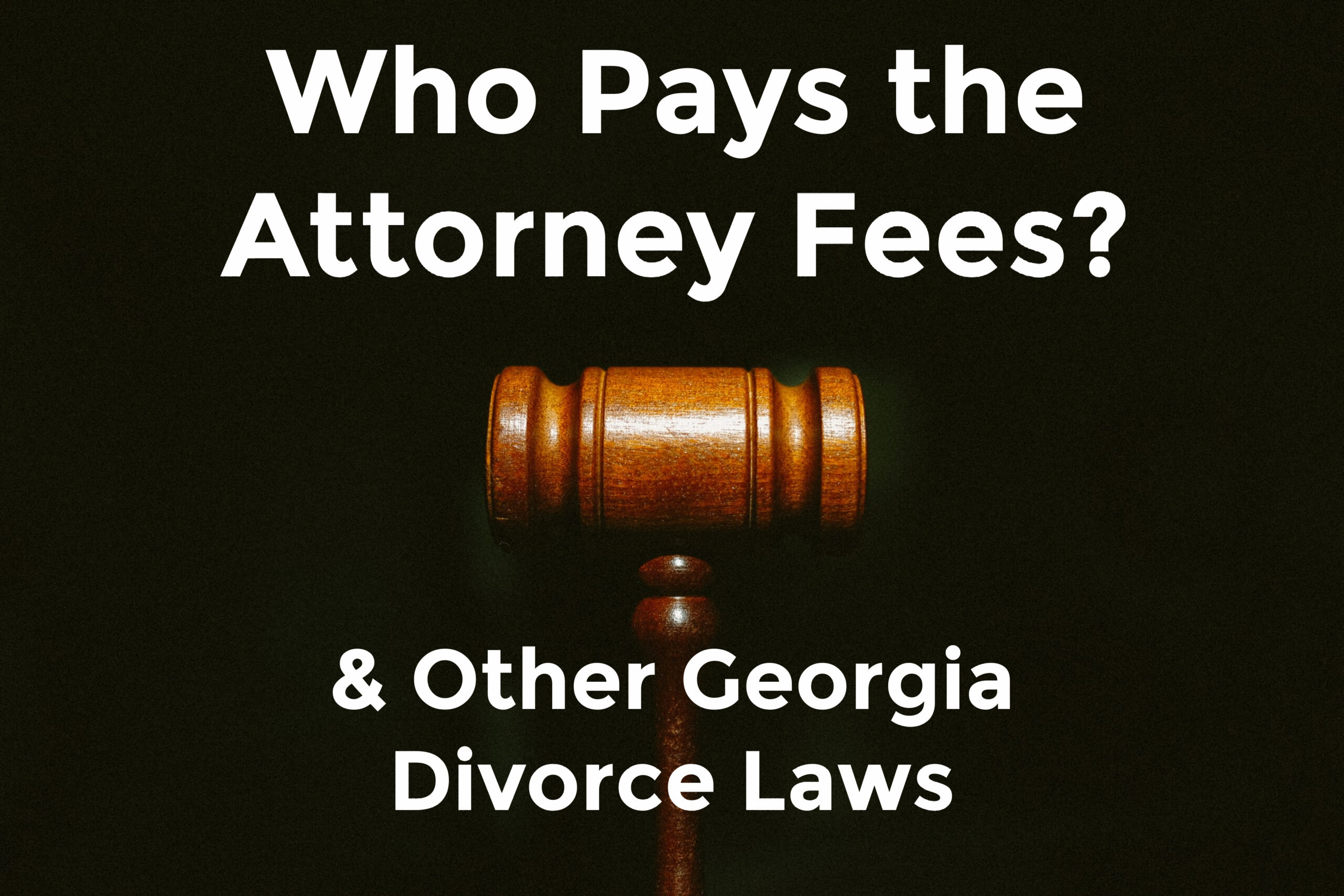You’ve decided to get divorced…now what?
Learn how Georgia divorce laws govern alimony, attorney fees, division of property, and other details.
Filing for divorce is one of the hardest decisions you’ll ever make. But it’s a cinch compared to all the little decisions that come afterward.
How do you divide your debts, assets, and property? Should you request alimony? Who gets custody of the kids? Who pays the attorney fees?
While there are no “one-size-fits-all” rules when it comes to divorce proceedings, there are a few Georgia divorce laws that you should know before you bring everything before the judge.
Division of Property
Georgia is known as an “Equitable Distribution” state, which simply means that marital property, assets, and debts are fairly divided between the parties pursuing a divorce.
Equitable distribution laws are a great way to ensure that both parties get their fair share in a divorce, but this doesn’t mean that everything is split 50/50.

In short, “equitable” does not mean “equal.”
Rather than splitting assets and debts down the middle, Georgia courts take the matter into careful consideration when deciding who gets what.
Factors that the court might consider when dividing property include:
- Each party’s share in acquiring and maintaining the marital property;
- How each party plans to use the property;
- Each party’s separate, non-marital property;
- Each party’s contribution to the family unit; and
- The length of the marriage.
Generally speaking, an asset or a debt is only deemed “marital property” if it was acquired by the couple during the marriage.
If either of you came into the marriage with your own property, debts, or obligations, it would remain your own separate property. For example, if you purchased a house or racked up credit card debt prior to meeting your soon-to-be ex, those would remain solely in your name.
Each spouse is also typically entitled to keep any property they received individually as a gift, inheritance, or bequest. So if your grandmother passed away and left you her antique spoon collection in her will, it’s likely that you will be allowed to keep it (whether you want to, however, is a different story).

Alimony
While each spouse is entitled to equitable division of property, alimony is awarded on a case-by-case basis.
The courts will consider:
- The needs of the party petitioning for alimony;
- The ability of the non-petitioning party to pay alimony; and
- The evidence of each party’s conduct towards each other.
Evidence of conduct is one of the most important things to understand if you (or your soon-to-be ex) are petitioning for alimony.
It is not necessarily the same thing as the grounds for divorce, although the two may overlap. For example, Kathy may be filing for divorce because of her husband Bill’s infidelity, but use his excessive gambling as evidence of his conduct. (“He lost so much money in Vegas that we had to file for bankruptcy!”)
In return, Bill may use Kathy’s drug addiction as evidence to oppose her request for alimony. (“She only wants my money for drugs!”)

Hearing from both parties allows the Georgia courts to make a fair ruling. For example, if Bill was divorcing Kathy over her infidelity or desertion of the marriage, the court would likely dismiss any alimony requests from Kathy.
Above all, it is the job of the Court to make a fair ruling in regards to any alimony payments. For example, Kathy’s drug addiction may indicate an inability to responsibly manage her finances (alimony request denied!). Alternatively, Bill’s attorney may argue that his gambling addiction prevents him from being able to make reliable payments.
Presenting and considering all of the evidence can take time. For divorces that involve a petition for alimony, Georgia divorce laws require that both parties make no substantial changes to the assets in their estate.
This is mostly a “common sense” rule that exists to keep people from hiding or liquidating assets in a punitive manner. Once the divorce has been finalized and the request for alimony is approved, each party may dispose of their own assets as they see fit.
Attorney Fees
In most cases, each party pays for their own attorney’s fees. But there are some situations where Georgia divorce laws allow you to request that your soon-to-be ex pay your attorney fees.
- In a divorce/alimony case
- You’ve petitioned the court for alimony only (separate from the divorce case)
- In the rare case where your ex is held in contempt of court and you are required to be at that proceeding
The decision to award payment of attorney fees to one party over another is completely within the discretion of the court and the judge will consider the full financial circumstances of both parties.

Child Custody
Child custody cases are usually (and understandably) fraught with emotion. Fortunately, Georgia judges have a wide scope of discretion they can use to make decisions regarding child custody.
In any custody hearing, Georgia divorce laws require the parents to prepare and submit a parenting plan that describes how the two of you will coordinate the task of jointly raising the child(ren).
Whenever children are involved, we recommend speaking with an attorney. Having your rights—not to mention the rights of your kids—represented should always be a priority.
Conclusion
Georgia divorce laws may not be incredibly complicated, but they can seem that way when your emotions have become overwhelming.
When facing a divorce in Georgia, it is always best to seek the guidance of a licensed attorney to represent your interests and guide you through the process.
ProPrudence is the easiest way to find a Georgia lawyer with the right experience to help you. A free, virtual consultation with a licensed attorney is just a few clicks away.





